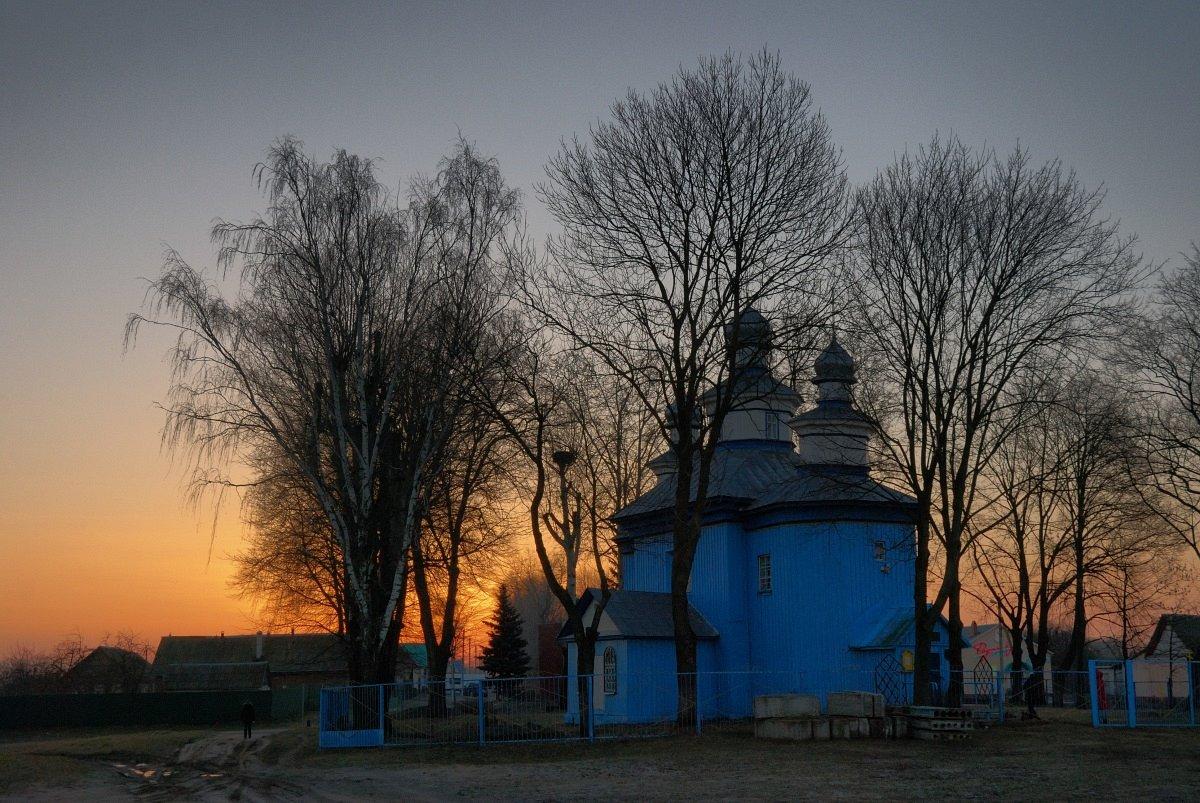Church of St. Nicholas

The Church of St. Nicholas is a monument of wooden architecture with elements of Baroque style. Built in 1710, the church is still in use. The original composition of the building is altered by the later added vestibules.

The Church of St. Nicholas is a monument of wooden architecture with elements of Baroque style. Built in 1710, the church is still in use. The original composition of the building is altered by the later added vestibules.

St. Michael's Church is a memorial church for the victims of the Chernobyl disaster. The first church was founded in 1763 for a Uniate (Greek Catholic) community. In 1847 a new church was completed. With the Chernobyl accident on 26 April 1986, the village of Vyleva was radiologically contaminated, the inhabitants were evicted and the church was abandoned. In 2000, a plan was drawn up to move the church to Gomel. The church was consecrated in Gomel on 26 April 2006. It is the only church in Belarus that was moved from the Chernobyl exclusion zone.

The Ilyinskaya Church is a church of Old Believers, a monument of Belarusian wooden architecture of the late 18th century. It was built in 1773-1774 and consecrated on September 28, 1794. In 1850, the hermitage and the church were closed, from 1852 the church became active again.

The Peter and Paul Cathedral is an Orthodox church, one of the best examples of classicism in Belarusian architecture. It was built between 1809 and 1819 by the architect John Clark. In 1907 the church became a cathedral. In 1929, the cathedral was closed by the local authorities, and from 1932 it housed exhibitions of the local history museum. The cathedral underwent major changes: the bell tower was destroyed, crosses were torn down, bells were dropped, rich church utensils and icons were looted. After the Second World War, the cathedral became a planetarium, which was closed in 1985. In 1989, after restoration work, the temple was returned to the faithful.